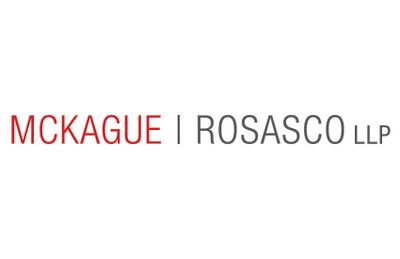WEBINAR: Paycheck Protection Act: You’ve Got the Loan Now Get Forgiveness
Paycheck Protection Act: You’ve Got the Loan Now Get Forgiveness
Webinar time:
Tuesday, June 2, 2020
10 am – 11 am
Presenters:
Erica Rosasco, Partner - McKague Rosasco
Lori Reich, President & Founder - Reich & Associates
To help members during these uncertain times, we are continuing offering series of one-hour webinars. Please join us next week with Erica Rosasco, Partner from McKague Rosasco and Lori Reich, President & Founder of Reich & Associates to discuss PPP loan forgiveness guidance.
Presenters will answer your specific questions. Please submit your questions on this topic to apma20@pacbell.net by Noon on Monday, June 1, 2020.
Webinar link - please fill out your name, company and email to register.
Additional event information on Eventbrite
Description:
The Coronavirus Aid, Relief, and Economic Security Act (CARES Act), signed into law by President Trump on March 27, 2020, is a $2 trillion relief package aimed at helping alleviate some of the impact that the COVID-19 pandemic has had on U.S. businesses. The CARES Act created the Paycheck Protection Program (“PPP”). The PPP amends the Small Business Act (“SBA”) to provide short term loans to companies with fewer than 500 employees. Many borrowers are in the dark about the forgiveness aspect of the loan. This informative webinar will walk you through the requirements to achieve forgiveness so you do not end up losing out on vital funds.
The SBA has issued its forgiveness application, which is over 10 pages, and further guidance in the interim rules . The 26 pages of loan forgiveness requirements guidance, a substantial portion of which mirrors the instructions to the PPP loan forgiveness application released on May 15, answer more than a dozen questions related to the loan forgiveness process, which payroll and nonpayroll costs are eligible for forgiveness, and how various scenarios affect the amount of loan forgiveness for which a borrower qualifies.
We’ll answer some important questions such as:
1. What payroll expenses are included?
2. What happens if I don’t spend 75% of the funds on payroll?
3. Can I bonus employees to spend the paycheck funds?
4. What is included in utility expenses?
5. How long do I really have to spend the money?
6. How are full time equivalent employees defined?
We will also have a Q&A session at the end so bring your questions!
If you have any questions, please contact:
Julia Belliard (Executive Director - APMA) 831.422.8023
Disclaimer: The information provided on this website does not, and is not intended to, constitute legal advice; instead, all information, content, and materials available on this site are for general information purpose only. Information on this website may not constitute the most up-to-date legal or other information. You should always consult an experienced attorney if you have any questions about your business, policies, or your particular circumstances.

